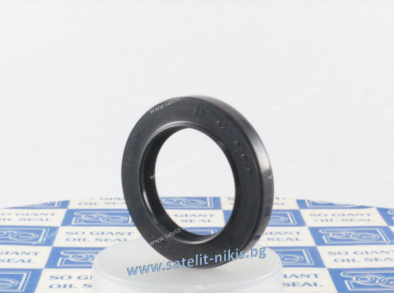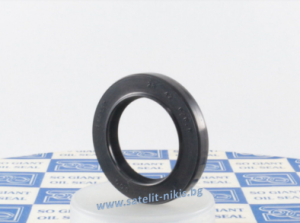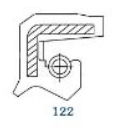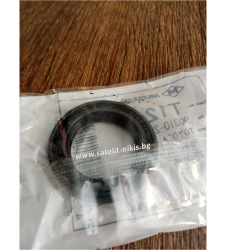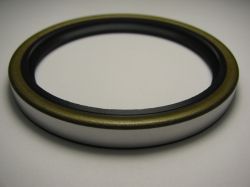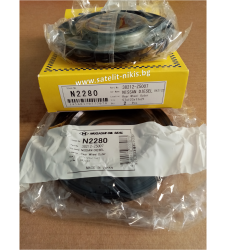Oil seal TCV (122) 35x45x7/7.5 NBR SOG/TW , for hydraulic pumps,motors and hydrodynamic couplings
-
Code:47035045077
-
Weight:0.000 Kgs
Oil seal type TCV (122), with dust lip and with spring.
Material: nitrile rubber (NBR).
Helix:
OE references:
Suitable for: hydraulic pumps,motors and hydrodynamic couplings
Working presure: up to 3 atm.
Working temperature: up to 60 ℃.
The nitrile rubber may vary in color from the one shown in the picture, without this affecting the sealing properties of the oil seal.
Manufacturer:
SO GIANT OIL SEAL INDUSTRIAL CO., LTD
For delivery options to your country, please do not hesitate to contact us!
Rubber properties - Acrylnitrile-butadiene rubber (NBR):
Standard color: black
NBR rubber demonstrates excellent resistance to the effects of mineral oils. It also provides particularly good results with hydraulic oils, grease, diesel fuels plus other aliphatic hydrocarbons, diluted acids and alkaline solutions that do not contain aromatic or chlorinated additives. Its excellent mechanical properties, such as high resistance to pressure and abrasion, high stability and good temperature resistance (-20°С to +120 °С), ensure a wide application range for this rubber.
Advantages:
- good oil and fuel resistance (especially to hydraulic oils)
- good working temperature range: -20°С to +120 °С in oil
- good resistance to pressure
- good wear resistance and high tensile strength
- low swelling in water
Limitations:
- poor weather, light and ozone resistance
- poor resistance to polar fluids
- poor resistance to chlorinated hydrocarbons
- poor resistance to aromatic fluids


